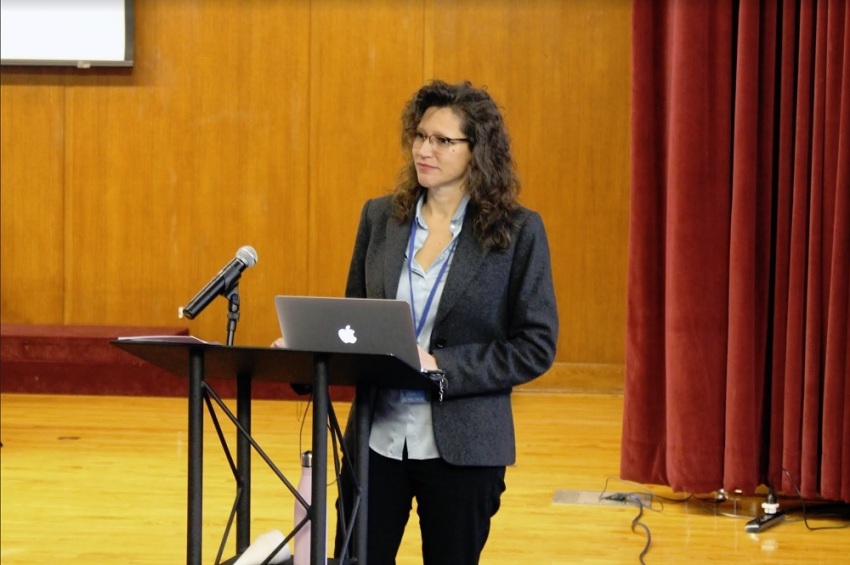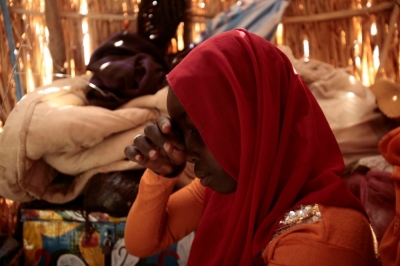How are men and women persecuted differently for their faith in Christ? Expert explains

A new report from the Christian persecution watchdog Open Doors USA details differences in how men and women are persecuted for their faith in Christ.
Helene Fisher, a gender persecution specialist with Open Doors USA, who co-authored the new report on gender-specific religious persecution, testified on a panel before the United Nations NGO Committee on Freedom of Religion or Belief last week where she outlined the findings from the new report.
Open Doors is an international non-profit that works in over 60 countries to advocate some of the world's most persecuted communities.
Although Christian persecution across the globe seems to be ever-increasing, Fisher explained that there are “completely different manners” in which men and women are persecuted.
“We characterize the persecution of men as being focused and severe and visible,” Fisher told The Christian Post in an interview. “And the persecution of women continues to be complex and hidden.”
In most cases, persecution occurs along the lines of how it will negatively impact their roles in society. For women, Fisher stated, persecution often revolves around the idea of ruining their sexual purity. Meanwhile, men tend to suffer from forms of economic harassment that can impact their place in society.
Men and women both suffer from societal shaming and shunning.
Women
The three most common points of persecution for women are a sexual attack, forced marriage, and rape, according to Fisher.
Since there is great value place in many societies around a girl’s purity, “targeted rapes” of girls are often used to bring shame to a certain family.
Targeted rapes
In the Open Doors 2019 World Watch List, the most common trend in the gender-specific persecution of Christians is the “targeted” raping of women solely for the purpose of bringing shame upon their families and community.
“When they are sexually assaulted, there is a shame that is brought upon them in society's views. And they are therefore viewed as tainted, having no future and their family also lose this honor,” Fisher explained. “And sometimes their whole Christian community is seen as less valuable, less pure.”
According to the Open Doors report, the prospects of survival for the whole “tainted” family are compromised when shunned in a society “where every aspect of life is communal.”
In some countries, such as Saudi Arabia, it is a “mortal sin” to bring shame to a family. The shaming process can often lead a family into financial vulnerability.
Forced marriage
Fifty-seven percent of the 49 countries reported on the Open Doors 2019 World Watch List who provided reports on the gender-specific persecution of women cited forced marriage as an issue in their nation. No countries reported forced marriage as an issue for men.

The problem exists in places such as North Africa, the Middle East and Asia where young Christian girls can be lured into a relationship where the “lines between abduction and seduction with intent are blurred.”
Christian women are reported to have been lured or abducted by terrorist groups such as Al-Shabaab and Boko Haram. The girls are often used as sex slaves, breeders or militia wives.
Christian girls are also often abducted by men from the majority religion in society and forced into a marriage without their families’ consent.
In some cases, Open Doors warns, girls will eventually blame themselves and make fewer efforts to escape “because of the perceived loss of honor and reputation due to the sexual assault committed against her.”
The report finds some state laws make forced marriage more easily practicable in the case of converts. In places like Pakistan, abductors of girls will threaten families if they try to get authorities involved to rescue their daughters. In some cases, family members are killed trying to rescue their loved ones.
While there are many cases in which Christian girls and women have been abducted and forced into marriage, girls and women who convert to Christianity can often be forced into marriages by their own families.
“Forced marriage is used by a family whose daughter has decided on her own through some kind of exposure to Christianity, maybe via satellite or a friend somewhere or maybe she's had a vision she has turned to Jesus and her family has found out,” Fisher explained. “[They will] marry her to somebody from the mainstream religion, and then it becomes more or less his problem to make sure that she adheres to the mainstream religion.”
Denial of custody
In many places where national, tribal or religious laws permit spouses to remove a Christian convert from the home, women face the risk of forced divorce and losing custody of their children if they convert to Christianity.
While this dilemma can face both men and women who convert to Christianity, it appears to be a more common occurrence for women, according to Open Doors’ reporting.
“Forced divorce is a seriously dissuasive element to conversion, which is also provoked by family honor; often (but not exclusively) the husband’s family honor,” the report reads.
Fisher explained persecution against Christian females is often done with impunity in some countries and states.
While conditions for women in general in many places around the world, things are even more tough for minority women in a lot of these cultures because it "blends in" and is "part of the societal and cultural practice."
“They don't see anything wrong with what they're doing. And their society around doesn't see anything wrong,” Fisher told CP. “What they're doing is simply viewed as the way of life and viewed in some respects as saving a Christian from Christianity.”
Men
Christian men are subject to various forms of abuse and persecution for their faith.
Among them are economic harassment, forced military duty, torture, imprisonment, shunning and shaming.
Economic harassment
Economic harassment is the top form of religious persecution for men, according to Open Doors, which had over 46 respondent countries provide details on the gender-specific persecution of men.
Economic pressure is often used to try to get Christian men to renounce their faith in Christ.
According to the report, 34 of the 46 countries say that economic harassment was used to put pressure on Christian men and converts.
Additionally, six countries were reported as having issued fines as a form of economic pressure on Christian men.
Male converts to Christianity in some countries are often prevented from getting and retaining gainful employment. In many cases, such economic pressure hits immediately upon a man’s conversion.
In Nepal, according to an Open Doors researcher there, Christian men feel forced to migrate to new cities, live under a new identity and are economically deprived during their first phases of persecuted life.
“After being persecuted, the family often suffers through a reduced income as the men and boys are severely beaten and socially ostracized,” the researcher stated.
Shaming and Shunning
Just like it is used to persecute women, shaming and shunning are often used to target Christian men and their families. Shunning is used to directly impact “the severity of economic harassment suffered.”
“[W]hen shaming and shunning is associated with men it's usually things like them no longer being able to sell their things in the market or be part of the team in the fields,” Fisher explained.
The impact of shunning can be even greater in rural areas if men are excluded from the traditional ways of farming.
In places like Egypt, Muslim shop owners will call on their Muslim customers not to buy from Christian-owned shops.
Physical violence and torture
Torture and physical violence were reported in 35 percent of the 46 countries reporting information on the gender-specific persecution of men.
Half of the countries paired the mention of violence “with the inclusion of death” as a step that bad actors will take to pressure a Christian man to renounce his faith.
Violence is often used in conjunction with shame and socio-economic ostracism to persecute families.
A researcher in Somalia is quoted in the report as saying that men and boys were verbally abused, physically assaulted, tortured, burned alive, shot to death and even had their business taken over just the mere “suspicion of conversion.”
There have been countless stories of Christian converts attacked or killed — either by their own family members or enraged members of their community — simply for converting to Christianity.
Incarceration and military conscription
Fisher added that another global trend that is more so focused on teenage boys is militia conscription and arduous military service.
According to Fisher, military service is used as a way of controlling Christian men and coercing them into “embracing whatever the natural national religion is.”
Christian men worldwide are also more likely to be imprisoned for their faith, Open Doors reports. Imprisonment can also entail “physical and psychological violence.”
“Several analysts connected government imprisonment with other pressure points, specifically violence and economic hardship,” the report reads.
In China, Christian men can be held in custody for weeks or months while being traumatized physically and psychologically.
In Iran, Open Doors reports, an arrest can be used as a tool to economically harass Christian men. Upon conversion, Christian converts are at risk of losing their jobs, especially if they have been arrested.
Follow Samuel Smith on Twitter: @IamSamSmith
or Facebook: SamuelSmithCP



























